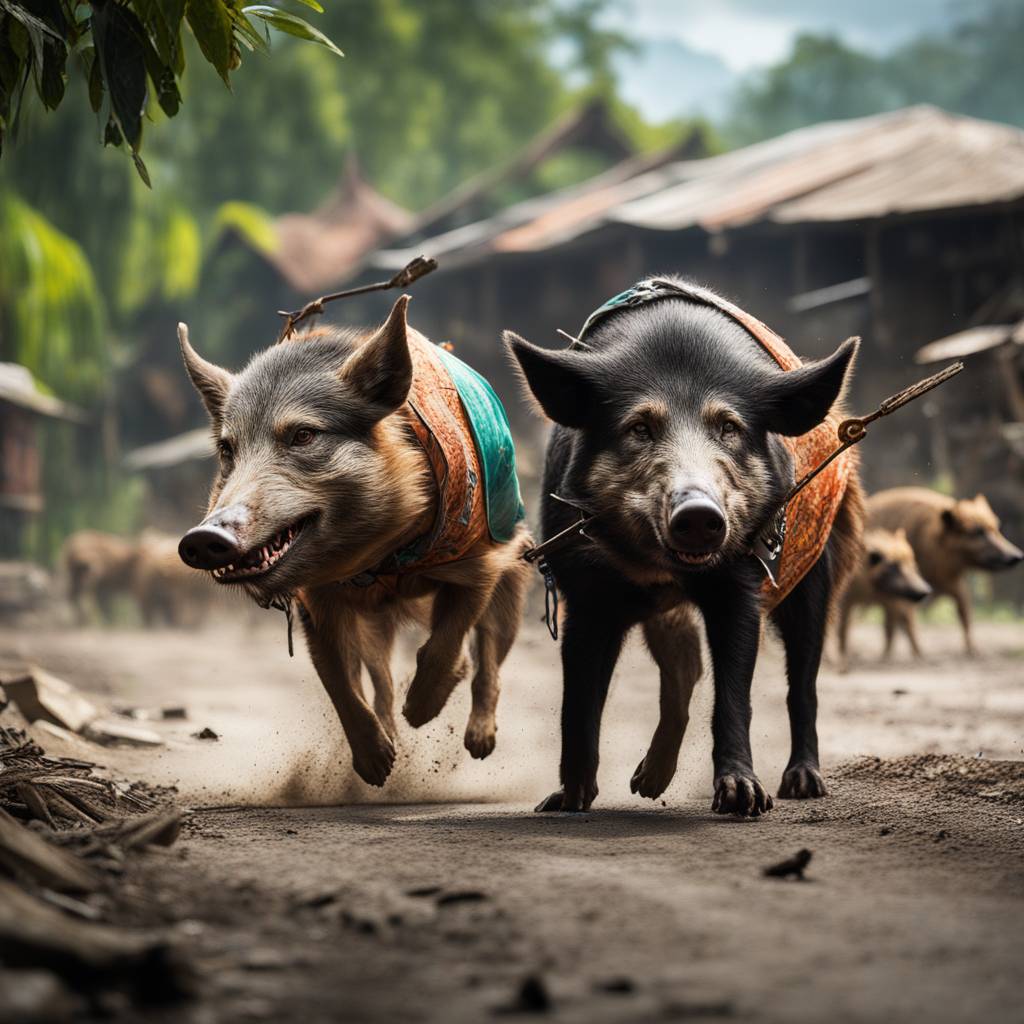Hunting wild boars in West Sumatra, Indonesia has been a tradition passed down from generation to generation. The local people rely on their dogs’ instincts and training from a young age to track and hunt the boars that often encroach on their farmlands. Unlike using guns or other weapons, the locals trust in the instinct and agility of their dogs to catch these animals. This tradition has become engrained in the culture of the region, with many considering it a necessary skill for survival and protection of their crops.
The relationship between the dogs and their owners in West Sumatra is unique and deeply intertwined. The dogs are raised from a young age to hunt, with the owners investing time and effort into training them. The dogs develop keen instincts for tracking and hunting the wild boars, often working in partnership with their human counterparts to corner and catch the animals. This mutual trust and cooperation between the dogs and their owners have become essential in successfully hunting wild boars in the region.
The hunting of wild boars in West Sumatra is not just a means of protection for the farmers’ crops, but also a way of preserving the local ecosystem. The boars can cause significant damage to the farmlands, leading to losses for the farmers. By hunting the boars, the locals are able to control their population and protect their livelihoods. Additionally, the traditional hunting practices help to maintain a balance in the ecosystem, preventing the boars from overrunning the area and causing further damage to the environment.
Despite the reliance on traditional hunting methods, the practice is also facing challenges in the modern world. As the region develops and urbanizes, the space for hunting wild boars is decreasing, leading to conflicts between the animals and humans. Furthermore, the younger generation in West Sumatra is becoming less interested in continuing the tradition of dog hunting, preferring other forms of entertainment and livelihoods. This shift in attitudes and priorities poses a threat to the sustainability of the practice and the preservation of the local ecosystem.
Efforts are being made to preserve the tradition of dog hunting in West Sumatra, including promoting awareness and appreciation of the practice among the younger generation. Organizations and local authorities are working to educate the public about the importance of this tradition in maintaining a balance in the ecosystem and protecting the farmers’ crops. Additionally, initiatives are being undertaken to provide support and resources to those who wish to continue the practice, such as training programs and equipment for hunting. By encouraging the continuation of dog hunting, the authorities hope to ensure the preservation of this tradition for future generations.
In conclusion, the tradition of hunting wild boars with dogs in West Sumatra is deeply rooted in the local culture and plays a vital role in protecting the farmers’ crops and preserving the ecosystem. The close relationship between the dogs and their owners, as well as the reliance on traditional hunting methods, have been essential in maintaining this practice for generations. Despite facing challenges from modernization and changing attitudes, efforts are being made to safeguard the tradition and promote awareness of its importance. By continuing to support and educate the public about the benefits of dog hunting, West Sumatra can ensure the longevity of this time-honored tradition for years to come.













